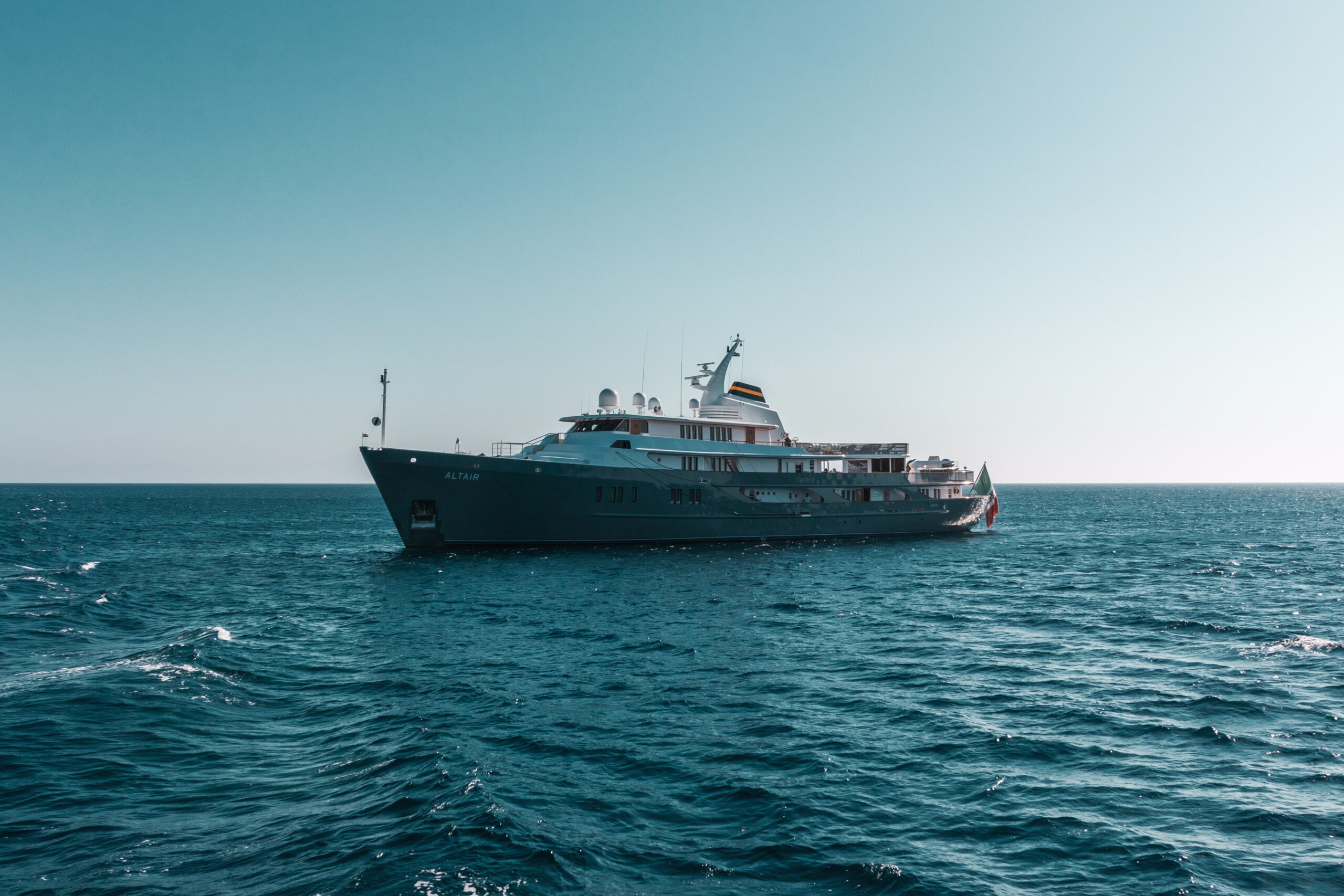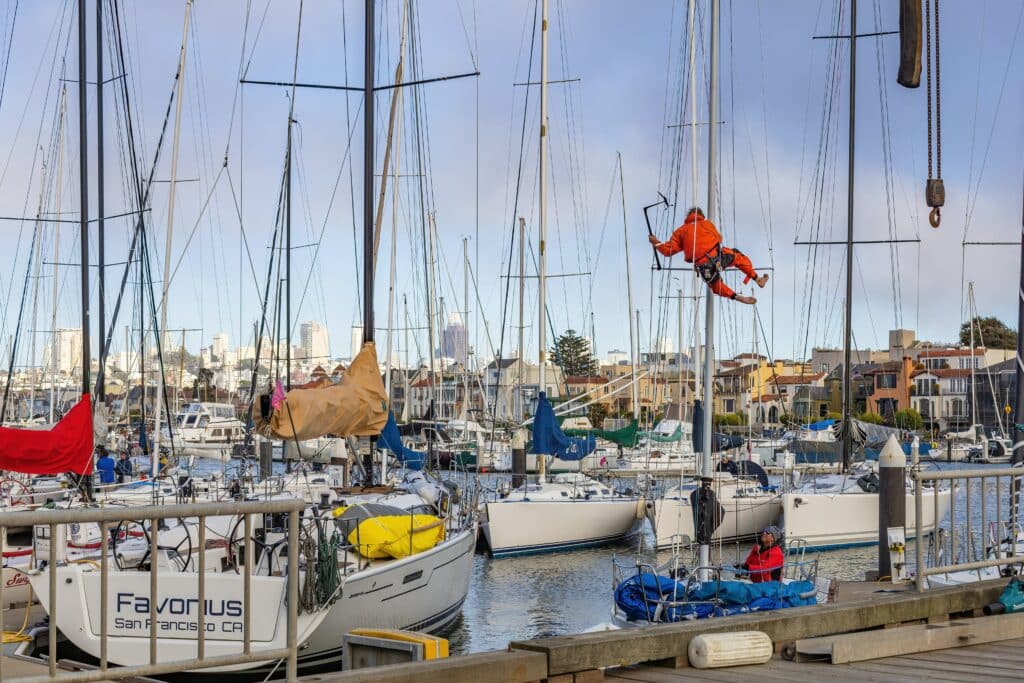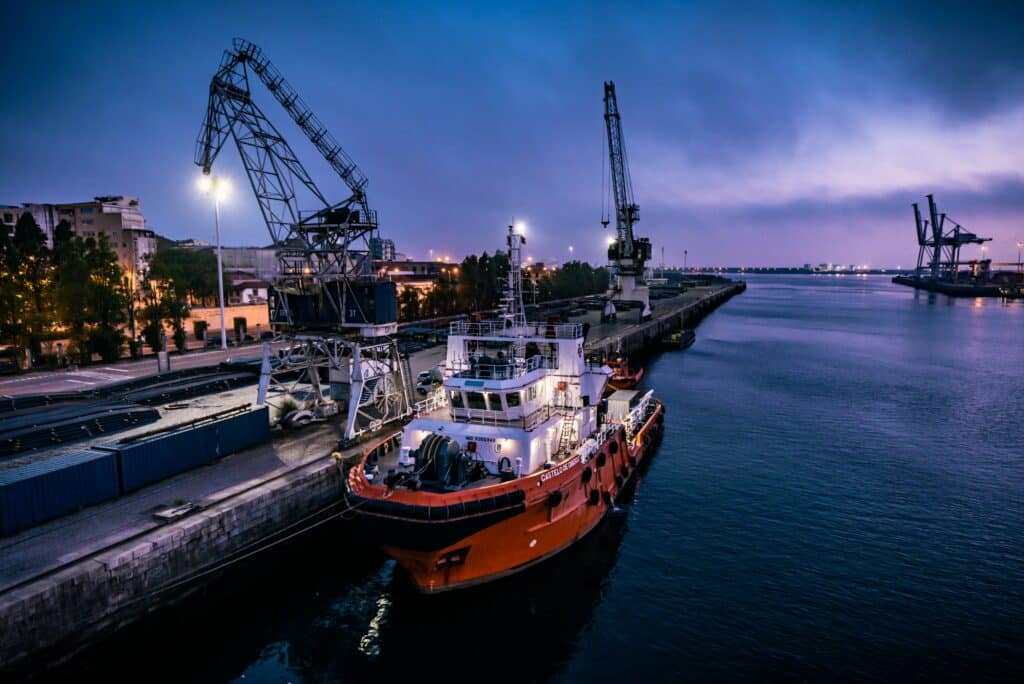
Is Marine Transportation a Good Career Path?
Marine transportation is one of the oldest industries in history, with many sea voyages opening up the world to other civilizations.
Today, marine transportation (also known as maritime transport) refers to the movement of people, goods, and materials over bodies of water, in watercrafts ranging from fishing boats to luxury cruises. The industry offers a wide range of career options and plays a critical role in the global economy.
Table of Contents
Best Jobs in Marine Transportation
Marine transportation can be categorized in the following types: cargo shipping, passenger transportation, naval and defense transportation, fishing and aquaculture, and offshore support.
Within these fields, there are many career paths that one can take, which will allow for a steady compensation and job security. With the nature of marine transportation, however, most of these jobs require days, weeks, or even months at sea away from home.
Ship Captain or Officer
A ship captain is the highest-ranking officer in a vessel. He is responsible for the operation and management of the ship and all its passengers. Right below him are first officers and other deck officers who assist the captain in the navigation and operation of the vessel.
A special undergraduate course is required for those aiming to get into these positions. Select universities and accredited institutes offer Bachelor of Science in Marine Transportation, followed by accomplishing courses and gaining experience along the way.
As with many professions, you will have to rise through the ranks to become a ship captain. Important maritime courses include Global Maritime Distress Safety System (GMDSS) about radio communication and distress situations, and the Radar Observer Course (ROC/ ARPA) which tackles the usage of the ship radar and the plotting system.
Given that they can get exposed to many elements while on the job, everyone working in marine transportation must pass certain fitness exams to ensure that they are fit for duty at the sea. Medical certificates are presented and must be validated in order for any maritime vessel employee to work.
Seafarer
Seafarers are crew members assigned to various tasks in the vessel, which range from cargo handling to engine maintenance and even cooking for everyone’s meals. In the United States, seafarers are not required to obtain specific bachelor’s degrees but rather begin with entry-level maritime courses.
The Able Bodied Seaman course is a five-day training course that marks the first step of being a mariner. From here, experience in vessels will allow the opportunity for seafarers to get endorsements to other marine transport-related jobs.
The Standards of Training, Certification, and Watchkeeping (STCW), as established by the International Maritime Organization (IMO) determines the minimum training and certification required for specific levels of seafarers.
Port and Harbor Worker
Port and harbor occupations can range from stevedores (personnel contracted for handling cargo), harbor pilots, security personnel, and terminal managers.
These jobs ensure the efficient operations in ports to decrease waste in time and resources, as well as the proper handling of cargo. Depending on their responsibilities, certifications and training may be required, such as Port Facility Security Officer certifications, maritime law, shipbroking, and environmental management.
In specific ports, such as the Port of Los Angeles, most employees are hired through the civil service employment roster of the state personnel department, while interns and student workers are directly hired. The International Ship and Port Facility Security (ISPS) Code also requires some employees to obtain certifications matching their roles in the port.
Oceanographer
Oceanographers play a critical role in maritime transport as they provide insight on the marine environment, monitor pollution, and advise on environmental protection measures.
With the declining number of fisheries, eroding coastlines, and the general threat of climate change in marine life, they are important in making sure that marine transport businesses are doing their job in maintaining the safety of the waters, their main medium of transport.
A bachelor’s degree in oceanography is required to become an oceanographer, which has five (5) different specialties: physical oceanographer, biological oceanographer, chemical oceanographer, marine geologist, and applied ocean scientist. However, only oceanographers who use the titles “geoscientist” or “geophysicist,” may need appropriate state licensing to work within a given state. There are also voluntary certifications that allow for continued learning.
Maritime Education Trainer/Specialist
Maritime Education Trainers and Specialists are professionals who provide education and training to seafarers and other fellow professionals. Since there are only select marine transportation institutes or universities offering courses, these specialists are required in order to keep on attracting aspiring maritime workers.
Trainers are usually previous seafarers and workers themselves. They focus on educating students in the laws and regulations of marine transportation, working conditions, and the expectations that come with the occupation. Their credentials usually speak for themselves, whether from education or from experience.
Why Choose Marine Transportation
Marine transportation is regulated by international conventions to ensure the safety of all workers, as well as the safety of the environment.
While it can get physically demanding, a career in marine transportation provides steady compensation and a pension once you retire. As it is also in charge of moving raw materials from one place to another, economies will consistently depend on the industry and thus will not fade into obscurity any time soon.
Opportunities and Compensation
Salary expectations in marine transportation depend on roles, level of experience, vessel type, and location. The following are approximates of compensation of jobs in the industry:
Ship mates can expect a salary of $40,000 up to $90,000 a year, depending on their position in the chain of command. Ship captains or masters on the other hand earn from $70,000 up to $150,000, depending on the vessel that they lead.
Seafarers, especially those just beginning in the field, earn an average of $20,000 to $50,000 annually, while port and harbor workers can earn from $30,000 to $70,000. Shipbrokers and maritime managers can expect to earn as much as $120,000 a year, depending on the location and responsibilities.
For environmental specialists or oceanographers, salaries can range from $45,000 up to $100,000 a year. It is important to note that some roles include benefits, rotational schedules, or tax exemptions. In recent years, there is a slight shift in the skill sets required for some of the jobs in the industry due to new technologies and practices, but the demand for skilled professionals is expected to be consistent.
Outlook
Outlook for the marine transportation industry is more or less stable in the coming decade, influenced by factors such as global trade, environmental concerns, and overall economic movement. As over 80% of goods are transported by sea, the industry will remain one of the most crucial factors for businesses and economies.
With the growing awareness and demand for more sustainable ways of transport and the impact of marine transportation on the environment, there has also been a movement to focus on developing new technologies for vessels to reduce their emissions. Alternative fuels, energy-efficient vessel designs, and new operational practices are being adopted by more and more companies.
Compliance is also an important factor for the marine transportation industry, as vessels travel from one port to another. Regulations continue to evolve to protect people, economies, and the environment, and those who adapt and invest earlier will have a competitive advantage.
Make Waves in the Industry
The marine transportation industry welcomes everyone from all walks of life, even when they do not have a high school diploma, as long as they pass all necessary training and submit all requirements. While it can be physically demanding, a career path in marine transportation provides steady compensation and a lucrative pension plan, depending on the years of experience and position when you retire.
As with most other jobs, continued learning certifications and refresher courses are important for professionals in marine transportation. Answer the call of the sea, and follow through with hard work, dedication, and commitment to your chosen career.
Sarah is an accomplished educator, researcher and author in the field of testing and assessment. She has worked with various educational institutions and organisations to develop innovative evaluation methods and enhance student learning. Sarah has published numerous articles and books on assessment and learning. Her passion for promoting equity and fairness in the education system fuels her commitment to sharing insights and best practices with educators and policymakers around the world.







